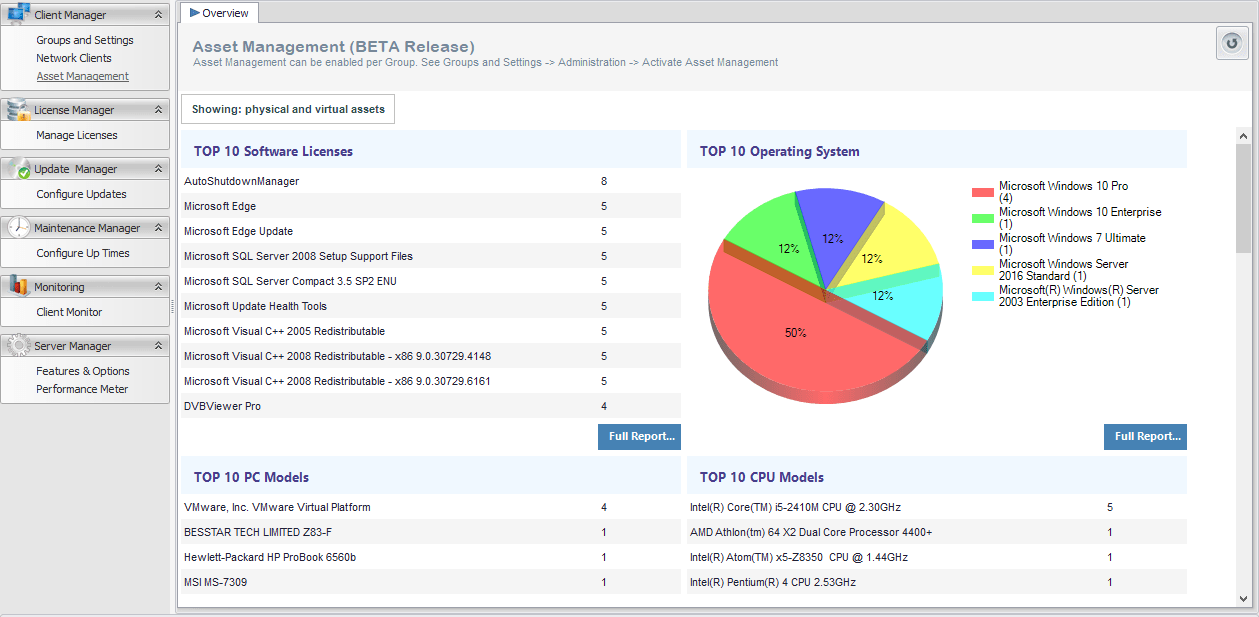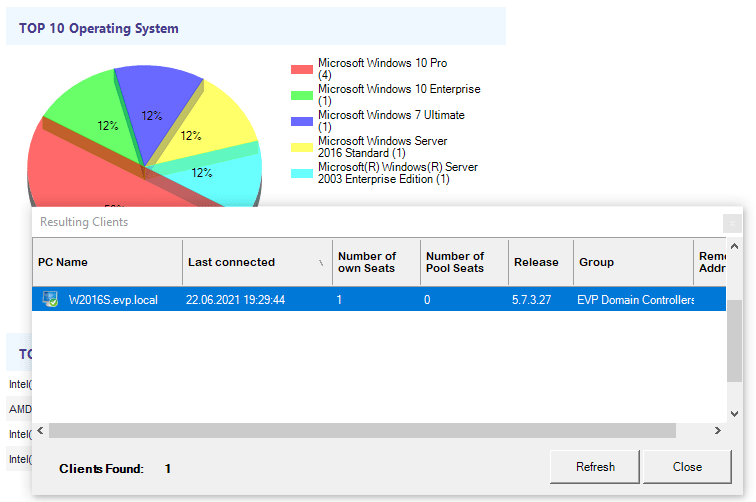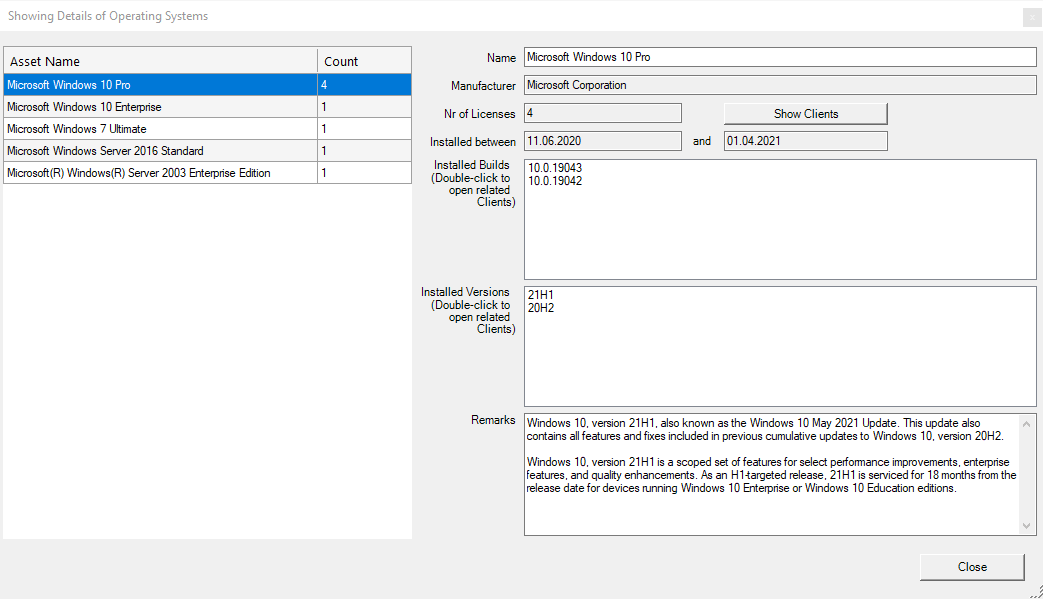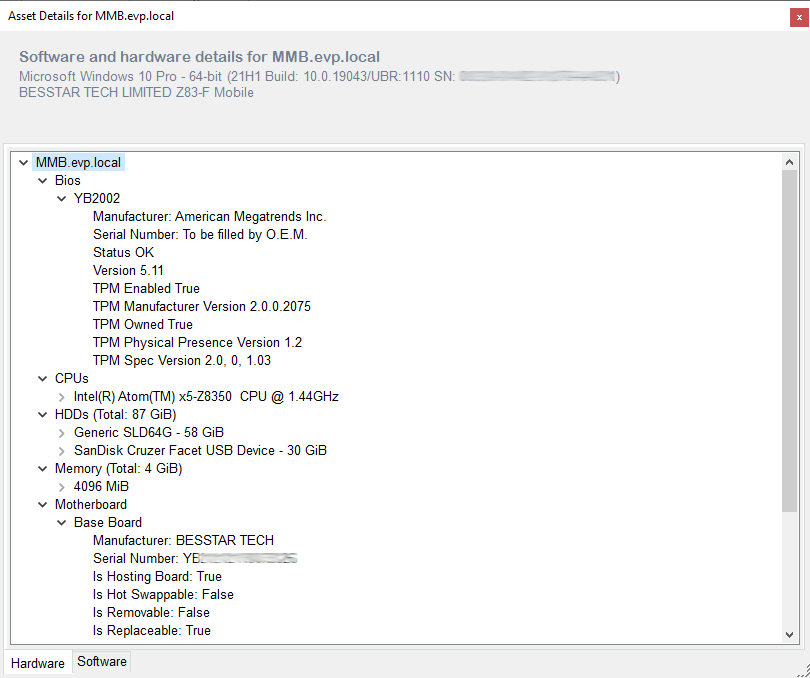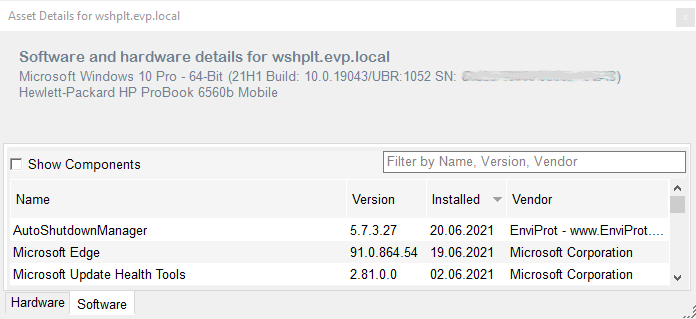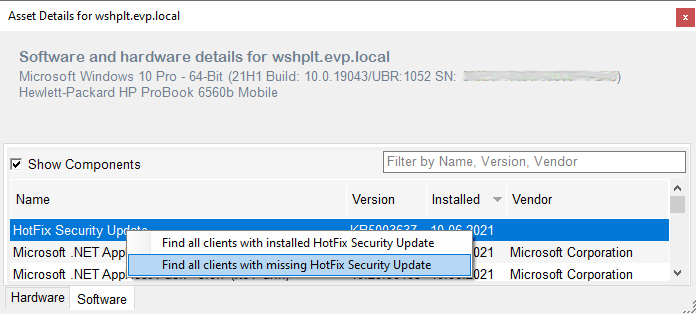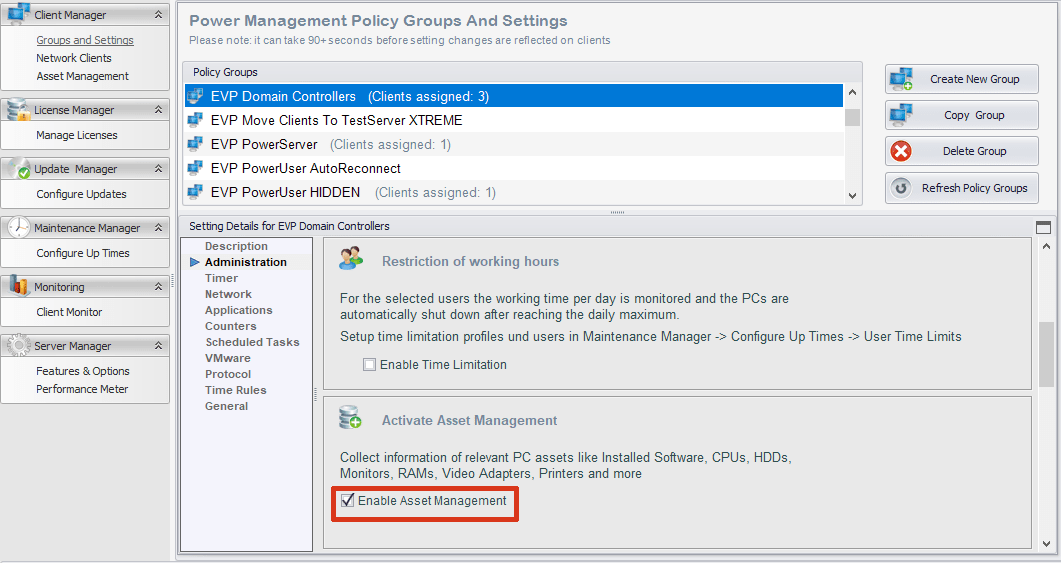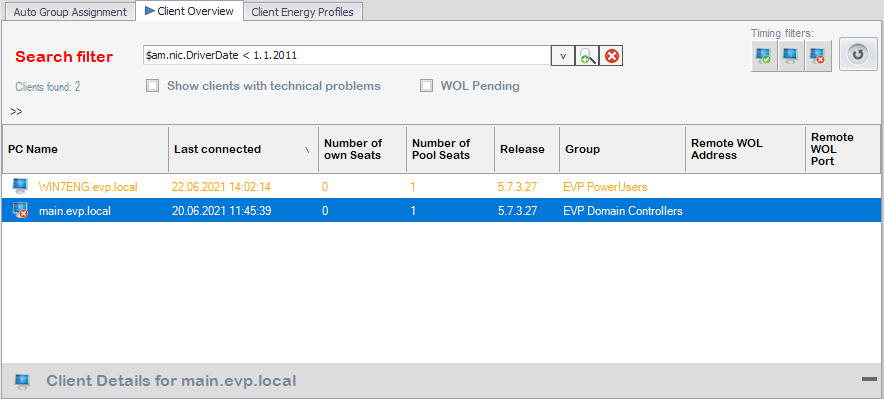The newly introduced IT Asset Management functionality in the Auto Shutdown Manager Management Console provides IT administrators and managers with an up-to-date view of all the important assets in their IT environment.
The number of installed licenses, numbers of deployed PC models, driver versions / dates, and many other aspects of your IT environment can be swiftly displayed and easily examined.
Asset data is read directly from the clients and is automatically updated on the server.
Assets Overview
You can switch between viewing all, physical or virtual assets.
Clicking on any individual asset category will list all the clients with that asset.
You can also drill-down into client details; clicking on any category, for example Microsoft Windows Server 2016, will list all clients with that OS installed:
Full Reports
Full reports deliver more specific data of any selected asset category. For example, the full report for Operating Systems shows how many licenses of each OS are installed and lists all the different builds as well as versions:
Asset details of individual clients
In a similar way to selecting an asset you also can also pick an individual client and see all the available asset details for that system. To do so, simply navigate to Client Overview, right click on a client of interest and select Client Assets:

This opens a new dialog with all available assets for this client:
In the Software tab, you can search for any software by name, version or vendor.:
You can also find components, such as hot-fixes. Equally importantly, another useful feature is to show all clients where a specific software version or an important hot-fix is missing:
Control what you see
IT Asset Management can be turned on or off for any individual policy group or to all groups. Simply navigate to Groups and Settings -> Administration:
Assets supported
Currently, the reports contain basic information of the following assets:
• BIOSes ($am.bios) incl. TPM chip
• Computer Models ($am.pcmodel)
• Computer Types (Desktops, Mobile, Servers, Workstations,…) ($am.pcmodel.Type)
• CPUs ($am.cpu)
• Hard drives ($am.nic)
• Installed Software ($am.soft)
• Monitors ($am.monitor)
• Motherboards ($am.mb)
• Network Interface Controllers ($am.nic)
• Operating Systems ($am.os)
• Printers ($am.printer)
• Video Controllers ($am.vc)
Further features
Clients can be found by specifying custom asset parameters.
For example, suppose you wished to find all network drivers older than 10 years. You can easily do this by entering a search filter starting with $am., (standing for IT Asset Management) followed by an asset category, for example NIC (network interface controller) followed by the asset detail, for example "DriverDate":
Example Windows 11 TPM:
for the upcoming Windows 11, find all clients that do offer the required TPM (Trusted Platform Module) support.
To find out, navigate to "Client Overview" and enter the following filter: $am.bios.TPM_Exists = yes or $am.bios.TPM_specVersion = [2-9]*
All clients that support TPM will be shown. With $am.bios.TPM_Exists = no , all clients that do not support TPM will be shown.
Open the client asset details to get more details such as if TPM is enabled, the TPM version, the supported TPM Spec version and more.
Requirements:
An installed MS SQL database is required. We recommend MS SQL 2012 (Express) or newer. For
simple step-by-step instructions, see the Auto Shutdown Manager manual.
Auto Shutdown Manager version 5.7.3.24 or later must be installed on both the clients and the server.
A major new benefit
IT Asset Management brings a new level of benefit to Auto Shutdown Manager. The necessity of visiting a system in situ to examine software or patch versions is vastly reduced if not eliminated altogether. Regular updates of asset registers become a pleasure not a chore and the time saved can be spent more productively.
This valuable new feature is covered by the Auto Shutdown Manager Version 5 license and does not require any license upgrades for current customers.

 DE
DE  EN
EN 